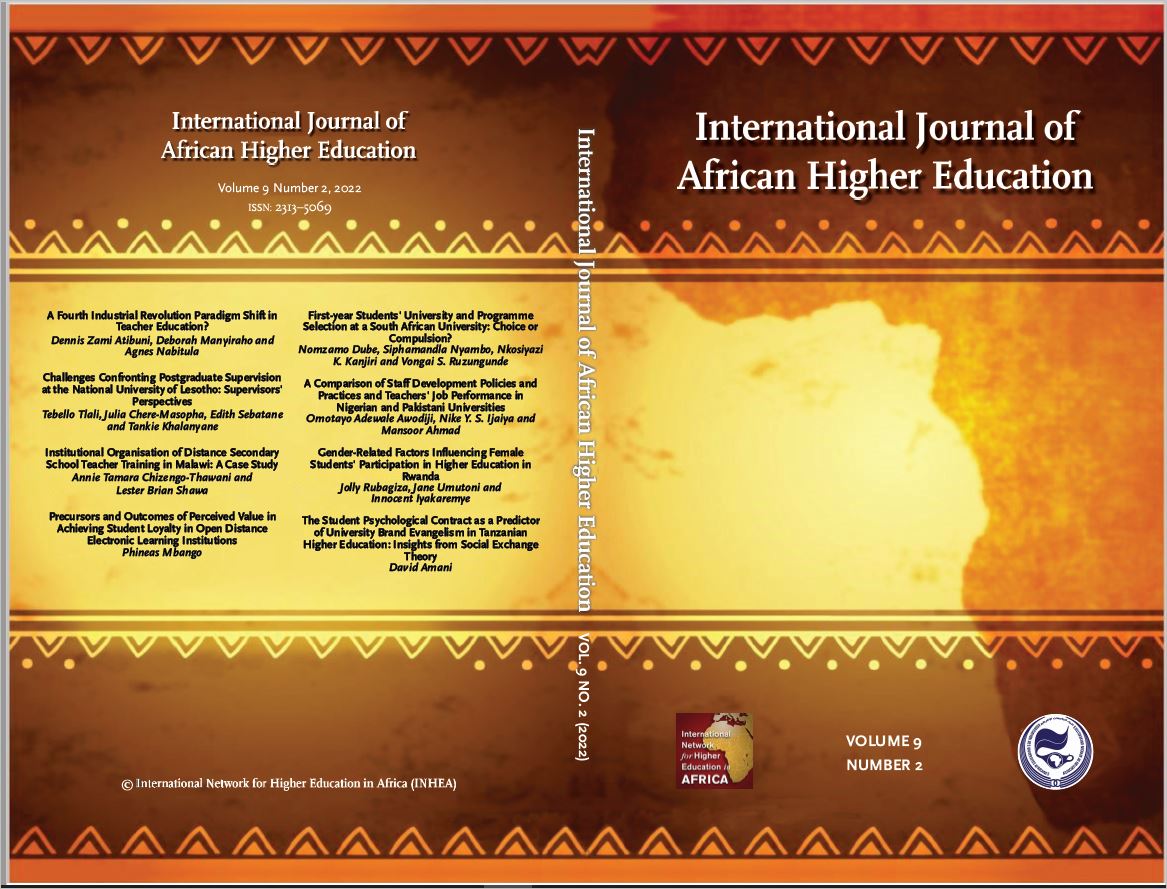Gender-Related Factors Influencing Female Students’ Participation in Higher Education in Rwanda
DOI:
https://doi.org/10.6017/ijahe.v9i2.15377Abstract
Rwanda is widely seen as one of the most progressive countries in the world with regard to promoting gender equality and women’s empowerment. In education, for example, girls’ access to primary and secondary education is among the highest in Africa. However, female students’ participation remains limited in public universities and they constitute only around a third of the student population at the University of Rwanda. This article explores the factors that influence female students’ participation in public higher education in the country. It draws from a study commissioned by the University of Rwanda on the causes of low female enrolment at the institution that was conducted between 2016 and 2017. The study employed a mixed methods approach, and data was gathered by means of questionnaires, in-depth interviews, and focus group discussions. The results revealed interlinked structural (such as university policies) and socio-cultural factors that contribute to the exclusion of female students from Rwanda’s top university. Given the complexities involved, this calls for a multi-pronged approach to address the issue of female representation at the University.
Key words: Gender disparities, female students, higher education, Rwanda
Downloads
Published
How to Cite
Issue
Section
License
Copyright (c) 2022 Jolly Rubagiza, Jane Umutoni, Innocent Iyakaremye

This work is licensed under a Creative Commons Attribution-NonCommercial-NoDerivatives 4.0 International License.

